We are grateful for the support of Chambre des notaires du Québec, Department of Justice Canada, Young Canada Works and Fondation du Barreau du Québec.
Assistant Directors
Mariana Romanello Jacob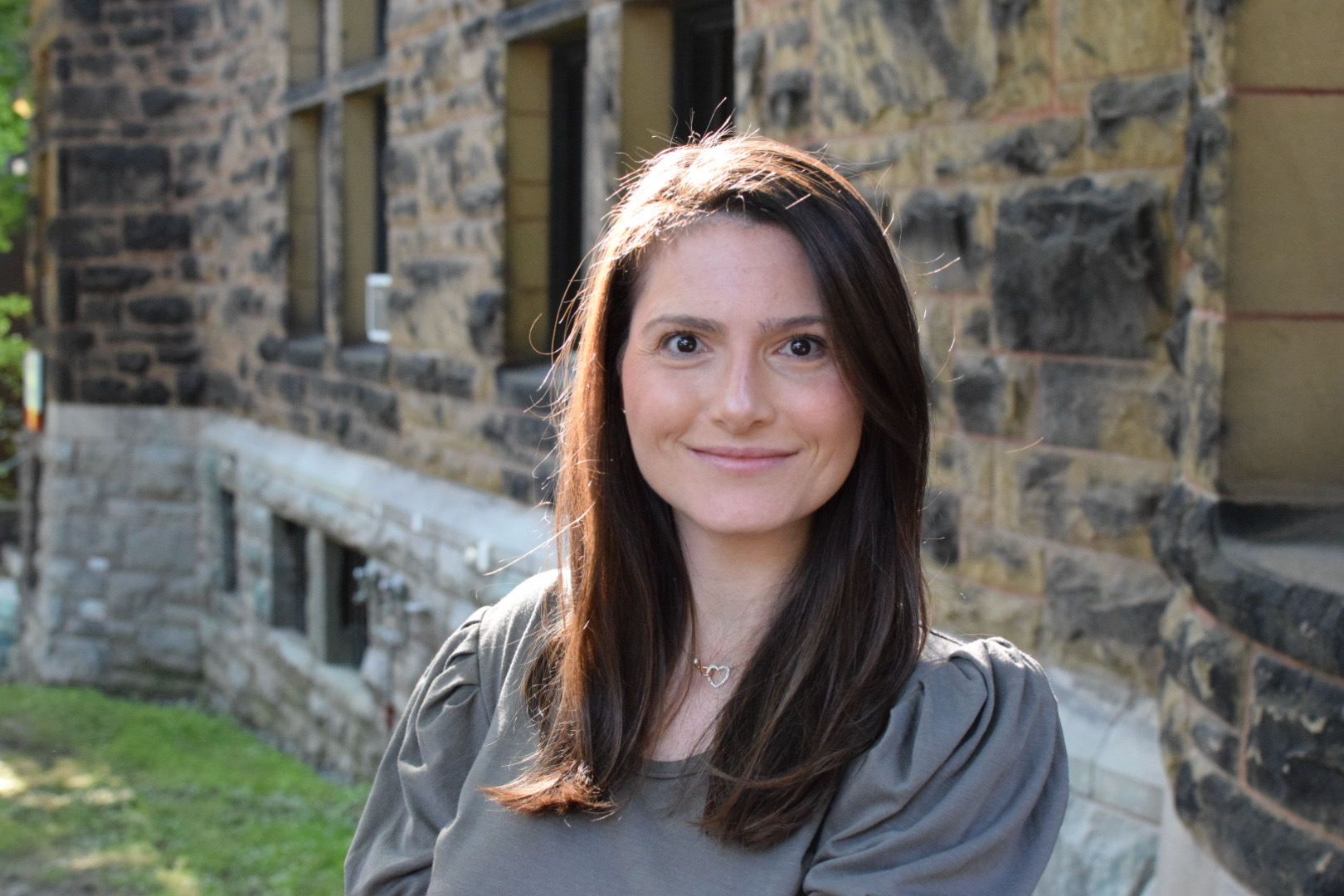
mariana.romanellojacob [at] mcgill.ca (Mariana Romanello Jacob) became Assistant Director of the Paul-André Crépeau Centre for Private and Comparative Law in February 2024. Prior to taking on this role, she worked there as Researcher-Project Coordinator. She completed her studies in Law in Brazil at the Faculty of Law of the Pontifícia Universidade Católica de Campinas. Throughout her course, she won two awards in undergraduate legal research to undertake studies in private international law as well as two honorary distinctions for her research results presented at conferences of the American Association of Private International Law (2014/2015). She was also a judicial intern at the Chambers of Judge Carlos Ortiz Gomes at the Court of Justice of the State of São Paulo (Brazil) during the 2012-2014 academic years.
After successfully completing the Brazilian Bar in 2015, Mariana worked as an associate attorney at the law firm Carvalho, Machado e Timm Advogados from 2016 to 2019. She was part of the civil law advisory team, with a focus on commercial contracts. As part of her experience as a contract lawyer, she had the opportunity to temporarily assist in-house legal teams inside multinational companies, obtaining a unique vision from the legal practice inside and outside large corporations.
In parallel to her legal practice, Mariana continued to chart her path in legal research, becoming a member of the “Direito, Globalização e Cidadania” [Law, Globalization, and Citizenship] Study and Research Group in Brazil, where she engaged in relevant studies in private and public international law. As a result, she has published and co-authored articles and book chapters on these subjects, especially in Latin America. She was the President of the Diversity Committee of this Research Group from 2020 to 2023. Mariana is also a member of the American Association of Private International Law (ASADIP) and of the International Civil Procedure Network (Rede-PCI).
In 2023, Mariana completed her master's degree in law (LLM-thesis) at the Faculty of Law of McGill University. She focused her thesis on the proximity principle in the jurisdictional aspect of cross-border disputes, undertaking comparative research between Canada and Brazil. During her studies at McGill University, she worked as a research assistant for Prof. Geneviève Saumier (2021-2023), conducting legal research on various facets of private international law. She was also engaged in different student activities, such as serving as Vice-President Finance of the Graduate Law Students Association during the 2020/2021 academic year and integrating the McGill Graduate Law Students Association Research Series editorial board in 2022 as a peer-reviewer.
Mariana has a strong interest in comparative law, which is at the cœur of the domain of private international law, the legal branch she has been researching for the past years. She is especially fascinated by the bilingual and bijuridical context of Quebec and is honoured to be a part of the research team of the Crépeau Centre.
Valérine Pinel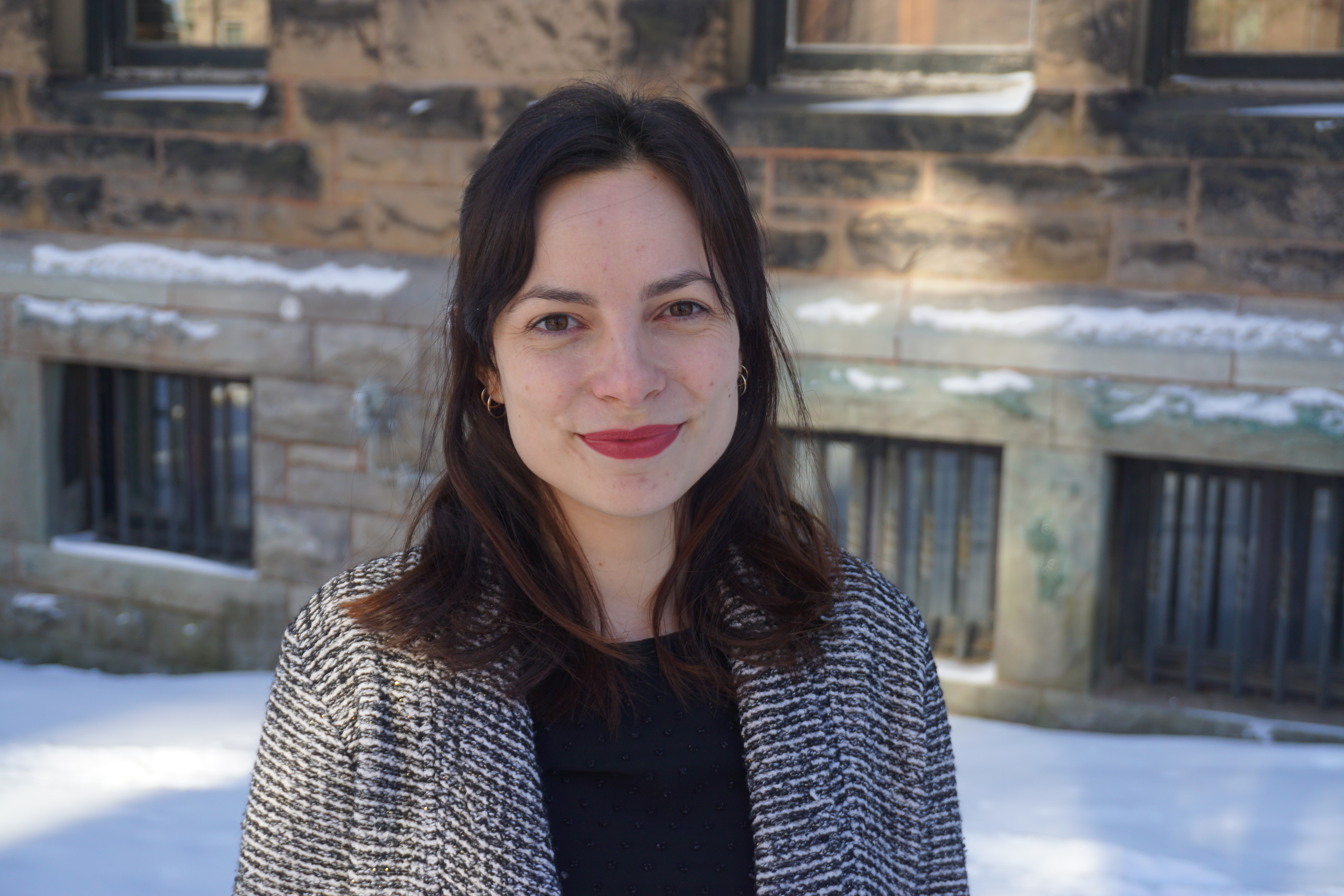
valerine.pinel [at] mcgill.ca (Valérine Pinel) became Assistant Director of the Paul-André Crépeau Centre for Private and Comparative Law in December 2024. Prior to this role, she worked there as Researcher-Project Coordinator since February 2024.
Trained in civil law in France, Valérine has a bachelor’s degree in private law and a master’s degree in criminal law from Toulouse Capitole University. Alongside her studies and numerous student jobs, she worked at the Genepi student association for four years. As a volunteer, Valérine taught incarcerated women, hosted a radio program, and participated in civil society awareness events on prison issues.
She discovered bijuralism in Quebec in 2018 thanks to a double degree between Laval University and Toulouse Capitole University, allowing her to obtain two master’s degrees in law from each country. Her research essay focused on the repercussions of preventive detention on fundamental rights.
Thanks to her experience in Quebec, Valérine developed a love for research, which pushed her to work as a research assistant at Laval University, in criminal and civil law with several professors from the Faculty of Law. She coordinated the Louis-Philippe-Pigeon Chair in Legal Writing for a year, before returning to France during the pandemic. During this transition period in France, Valérine worked for the Ministry of Justice as a probation officer. She also worked as a schoolteacher for a few months before returning to Quebec.
From 2022 to January 2024, Valérine was the coordinator of the Antoine-Turmel Research Chair at Laval University. Her research work has mainly focused on gender and age biases during the sentencing trial concerning older women, as well as on end-of-life care in Quebec.
Associates
Léa Decaster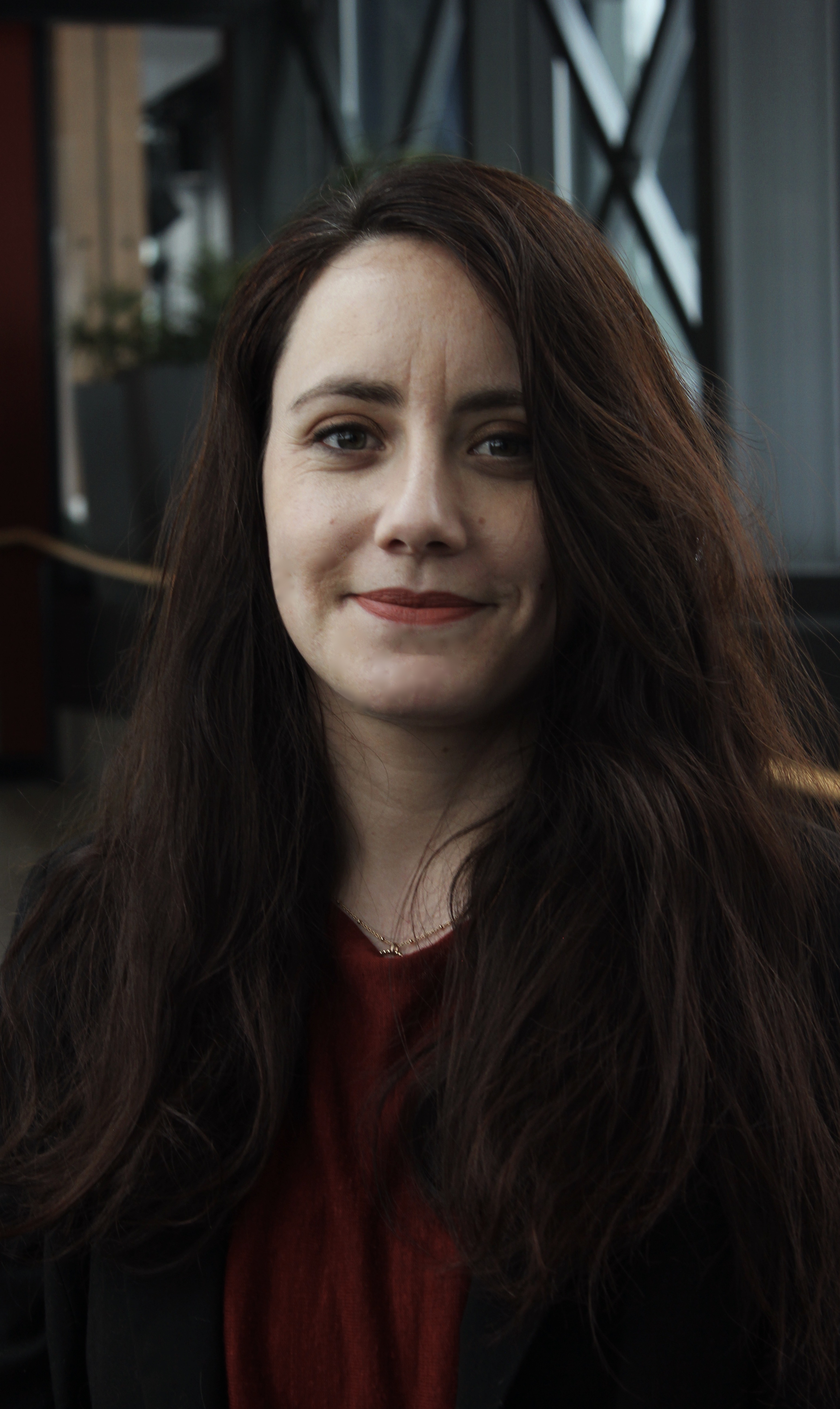
lea.decaster [at] mcgill.ca (Léa Decaster) is a researcher at the Paul-André Crépeau Centre for Private and Comparative Law as part of a project to develop a dictionary on the law of persons.She is also a PhD candidate at the Faculty of Law at Laval University and the Faculty of Law at Le Mans Université, under the supervision of Professors Christelle Landheer-Cieslak and Valérie Lasserre. Her thesis is titled 'Sex Identity and the Person in French and Quebec Civil Law.' Her research focuses on the identification of individuals by the mention of sex in civil status records and on the protection of fundamental human rights through this mention of sex.
At Laval University, she is a member of the Research Ethics Committee. She has been a mentor for the Graduate Student Support Center in Law, as well as a teaching and research assistant, from January 2021 to December 2023. She lectures at the University of Le Mans on contract law, family law, civil enforcement procedures, and family patrimonial law.
As a member of the Institut d’Éthique Appliquée de l’Université Laval and the Thémis-UM laboratory, Léa is interested in comparative law, civil law, fundamental rights, and—more specifically—personal and family law. She has published articles in several collective works on the topics of legal education in France and Quebec and the procedure for changing the mention of sex in civil status records. She has also organized and participated in numerous conferences and scientific seminars in Quebec and France.
Tiphaine Dourges
tiphaine.dourges [at] mcgill.ca (Tiphaine) joined the team at the Paul-André Crépeau Centre for Private and Comparative Law as a researcher in April 2024. After a Bachelor’s degree in law at the University Bordeaux 4 Montesquieu in France, Tiphaine continued her studies at the University of Bordeaux. She holds a research-based Master's degree in private law, with a specialization in criminal law. This training allowed her to explore the criminal law regimes of several foreign jurisdictions during a week of seminars presented by professors from Europe and Canada.
Driven by her desire to conduct academic research in comparative criminal law, Tiphaine completed a joint doctoral program between 2014 and 2022 under the co-supervision of professors Olivier Décima (University of Bordeaux) and Simon Roy (University of Sherbrooke). Her thesis, titled “Penal and extra-penal repressions in French and Canadian comparative law. Contribution to the general theory of repression”, seeks to respond to issues of the qualification of punitive sanctions in French and Canadian law by proposing a prospective legal definition of the term ‘repression’. At the end of her defense, the jury unanimously awarded her a mark of excellence. She also received authorization to publish her thesis without revisions, was encouraged to apply for thesis prizes, and was advised to publish her work. Tiphaine is also the recipient of the 2023 Chénier-Picard Fund Prize for the best law thesis from the University of Sherbrooke.
Alongside her doctoral research, Tiphaine had the pleasure of lecturing at the University of Bordeaux on various subjects of civil law (contracts and civil liability), criminal law (general principles, offenses, and comparative law), and legal methodology. She also had the chance to participate for several years in the training of judges at the École de la magistrature (France), as a tutor specialized in the law of obligations.
Before moving to Montreal in 2024, Tiphaine worked for a year as a researcher and editor in the Direction des affaires civiles et du sceau of the French Ministry of Justice. The main part of her mandate was to collaborate on the drafting of regulations for the legal and judicial professions. She found this experience very enriching and complementary to her academic training.
Tiphaine is particularly interested in civil liability, criminal liability (especially from the point of view of legal sanctions), and comparative law. The issues raised by the use of artificial intelligence in law are also part of her research interests.
Kayley Laura Lata
kayley.lata [at] mcgill.ca (Kayley Laura Lata) has been a researcher at the Paul-André Crépeau Centre for Private and Comparative Law since May 2024.
Kayley Laura is interested in the interconnection between law and the humanities. She is also interested in legal exceptionalism, specifically as it applies to pharmaceutical policy. In the past, she has also shown interest in the reasons and legal reasoning animating administrative and judicial decisions.
Kayley Laura completed her LL.M. at McGill University under the supervision of Daniel Weinstock. She wrote her master's thesis on the notion of medical necessity underlying the coverage of health care services in Quebec and Canada. Her thesis traces the genealogy of medical necessity while inquiring into the methods and epistemology of law.
During her studies, she was a fellow of the Department of Equity, Ethics and Policy at McGill University's School of Population and Global Health.
She also completed her Quebec Bar exams.
Aliya Behar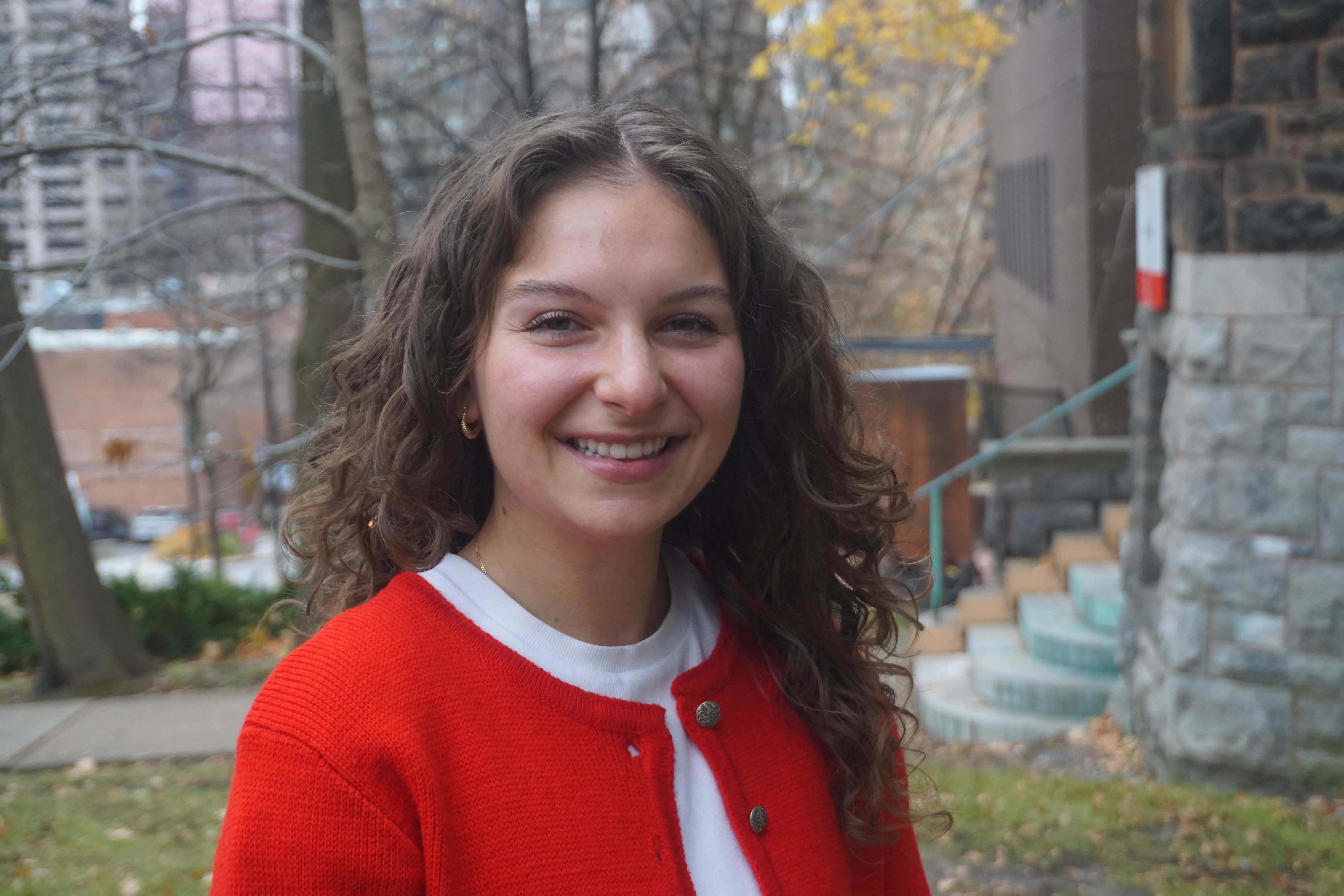
aliya.behar [at] mcgill.ca (Aliya Behar) joined the team at the Paul-André Crépeau Centre for Private and Comparative Law in October 2024. She is currently completing her Quebec Bar after having obtained her B.C.L./J.D. at McGill University, and is set to article at Woods LLP in 2025.
Aliya is passionate and curious about the intersections between public and private law in Quebec, and is interested in the practice of law through litigation. Aliya served as a Judicial Clerk to Justice Suzanne Courchesne at the Superior Court of Québec, and worked as a Research Assistant with Professors Alana Klein and Lara Khoury. Her rich involvement at McGill’s Faculty of Law spans from her role as the Co-Executive Director of the Wallenberg Advocacy Group to her work as a Senior English Editor with Contours Journal. She also represented McGill University at the Warren K. Winkler Class Actions Moot in Toronto.
Aliya discovered comparative law through her legal education at McGill, and deepened her understanding of civil law through her semester on academic exchange within the Masters in Economic Law Program at SciencesPo in Paris. She equally worked as a legal intern at the Bulgarian Center for Not-for-Profit Law in Sofia for one summer, researching the Bulgarian approach to hate speech and freedom of expression.
Scholars
- Éthel Groffier, universitaire émérite
- Adrian Popovici, membre visiteur
- Wendy Adams
- Aziza Ahmed
- France Allard
- Ross Anderson
- Kirsten Anker
- Mark Antaki
- Efrat Arbel
- Ori Aronson
- Louis Assier-Andrieu
- Frédéric Bachand
- Martha Bailey
- G. Blaine Baker
- Jean-Guy Belley
- George Bermann
- Laurence Bich-Carrière
- Andrea Bjorklund
- Mátyás Bódig
- Valérie Boudreau
- Daniel Boyer
- Alexandra Braun
- Jean-Maurice Brisson
- François Brochu
- Ruth Buchanan
- Karin Buhmann
- Angela Campbell
- Madeleine Cantin Cumyn
- Lisa Carayon
- Nadia Chammas
- Élise Charpentier
- Michelle Cumyn
- Hanoch Dagan
- Jean d'Aspremont
- Helge Dedek
- Gérald Delabre
- Marie Deschamps
- Eric Descheemaeker
- Mathieu Devinat
- Seán Patrick Donlan
- David M. Driesen
- Jaye Ellis
- Yaëll Emerich
- Omar Farahat
- Yann Favier
- Silvia Ferreri
- Mary Footer
- Patrick Forget
- Vincent Forray
- John Gardner
- Fabien Gélinas
- Jean-Claude Gémar
- Jane Matthews Glenn
- Robert Godin
- Gérald Goldstein
- Michele Graziadei
- James Hackney
- Neil Hazan
- Richard Hyland
- Christophe Jamin
- Richard Janda
- Pierre-Gabriel Jobin
- Rosalie Jukier
- Daniel Jutras
- Béatrice Balivet
- Nicholas Kasirer
- Ummni Khan
- Lara Khoury
- Dennis R. Klinck
- Hoi Kong
- Mariève Lacroix
- David Lametti
- Louise Langevin
- Robert Leckey
- Didier Lluelles
- Finn Makela
- Blandine Mallet-Bricout
- Michael McAuley
- Jean-Frédéric Ménard
- Ralf Michaels
- Christine Morin
- Mayo Moran
- Pierre-Emmanuel Moyse
- Olivier Moréteau
- Mario Naccarato
- Sylvio Normand
- Thierry Nootens
- François Ost
- Geneviève Painter
- James Penner
- Marilyn Piccini Roy
- Tina Piper
- Alexandra Popovici
- René Provost
- Dot Reid
- Eric Reiter
- Giorgio Resta
- Marie-Claude Rigaud
- Annelise Riles
- Cedric Ryngaert
- Anne Sanders
- Geneviève Saumier
- Ruth Sefton-Green
- Hila Shamir
- Lionel D. Smith
- Stephen Smith
- Maxime St-Hilaire
- Bertrand Stoffel
- Andréa Suurland
- Jeffrey Talpis
- Maurice Tancelin
- Giulia Terlizzi
- Stephen Toope
- Régine Tremblay
- Larissa van den Herik
- Shauna Van Praagh
- Nathalie Vézina
- Robert Wai
- Catherine Walsh
- Ernest Weinrib
- Frédéric Zenati-Castaing
- Peer Zumbansen
Students
Nazim Ait Ourdja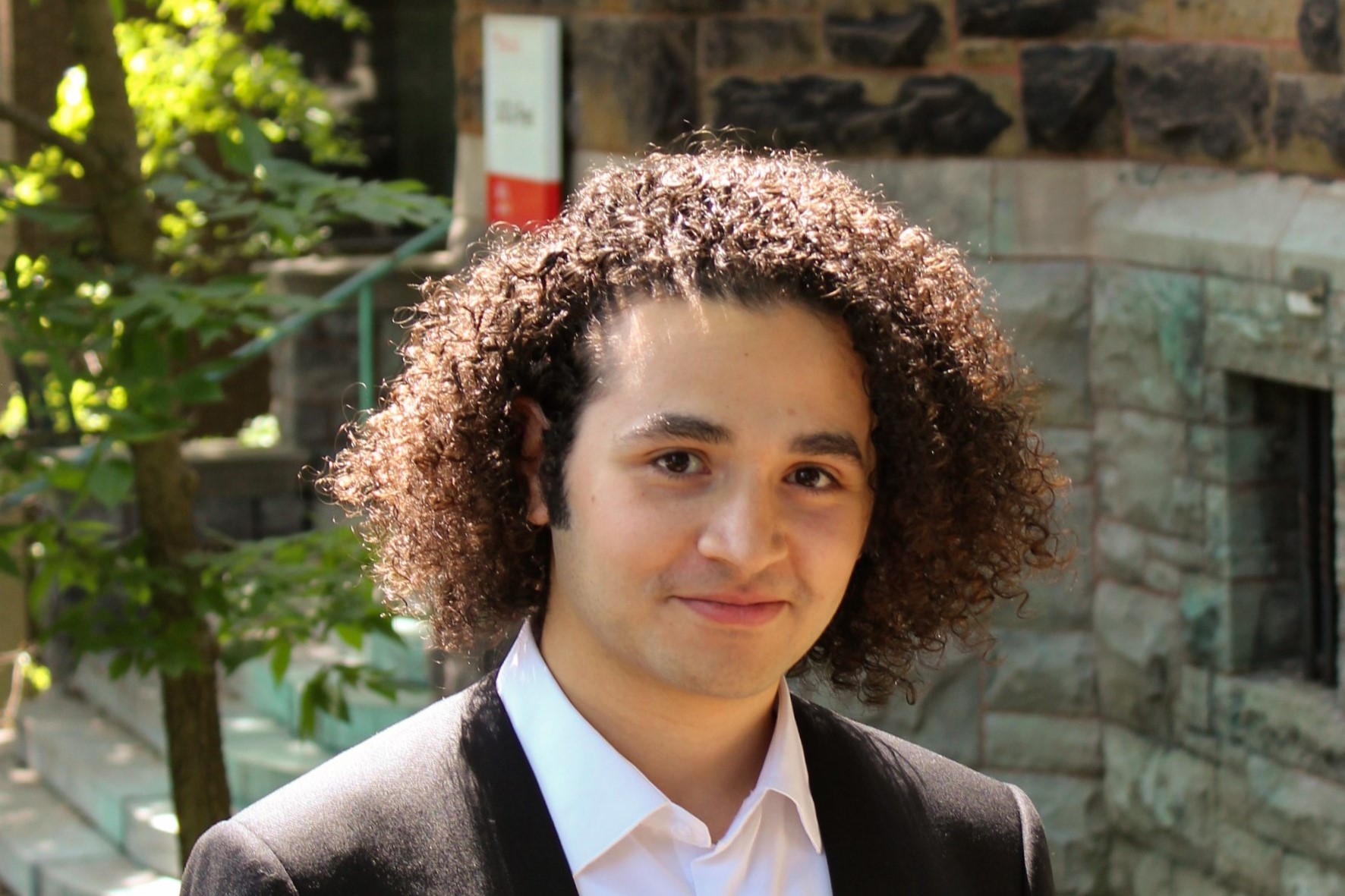
1. What prompted you to become a researcher at the Centre Crépeau ?
During my first semester in law at McGill, I realized how crucial a legal term’s meaning could be, even to the point of determining the outcome of a trial. Therefore, contributing to the definitions in the Private Law Dictionary represents an invaluable opportunity to familiarize myself with the various legal interpretations of legal terms and to trace their evolution over time and across linguistic contexts. Besides, I firmly believe that a good jurist is primarily a good researcher, and what better place than the Center to sharpen one's research skills?
2. How does bilingualism influence your approach and understanding of the law and its issues ?
Being bilingual allows us to contextualize a legal question within both the Quebec civil law and the Canadian common law, thereby highlighting its multiple facets and enabling a plurality of perspectives. This fosters a more fertile and nuanced understanding of the issue at hand, empowering legal professionals to conceive innovative and holistic solutions. More broadly, this approach reminds us that—in the legal field—there is no absolute answer, but rather a range of possibilities. It all hinges on one’s ingenuity and flexibility.
3. Is there a jurist that inspires you, and why ?
I admire Gisèle Halimi for her anti-colonial activism and her tireless fight for women’s rights.
Elora Deering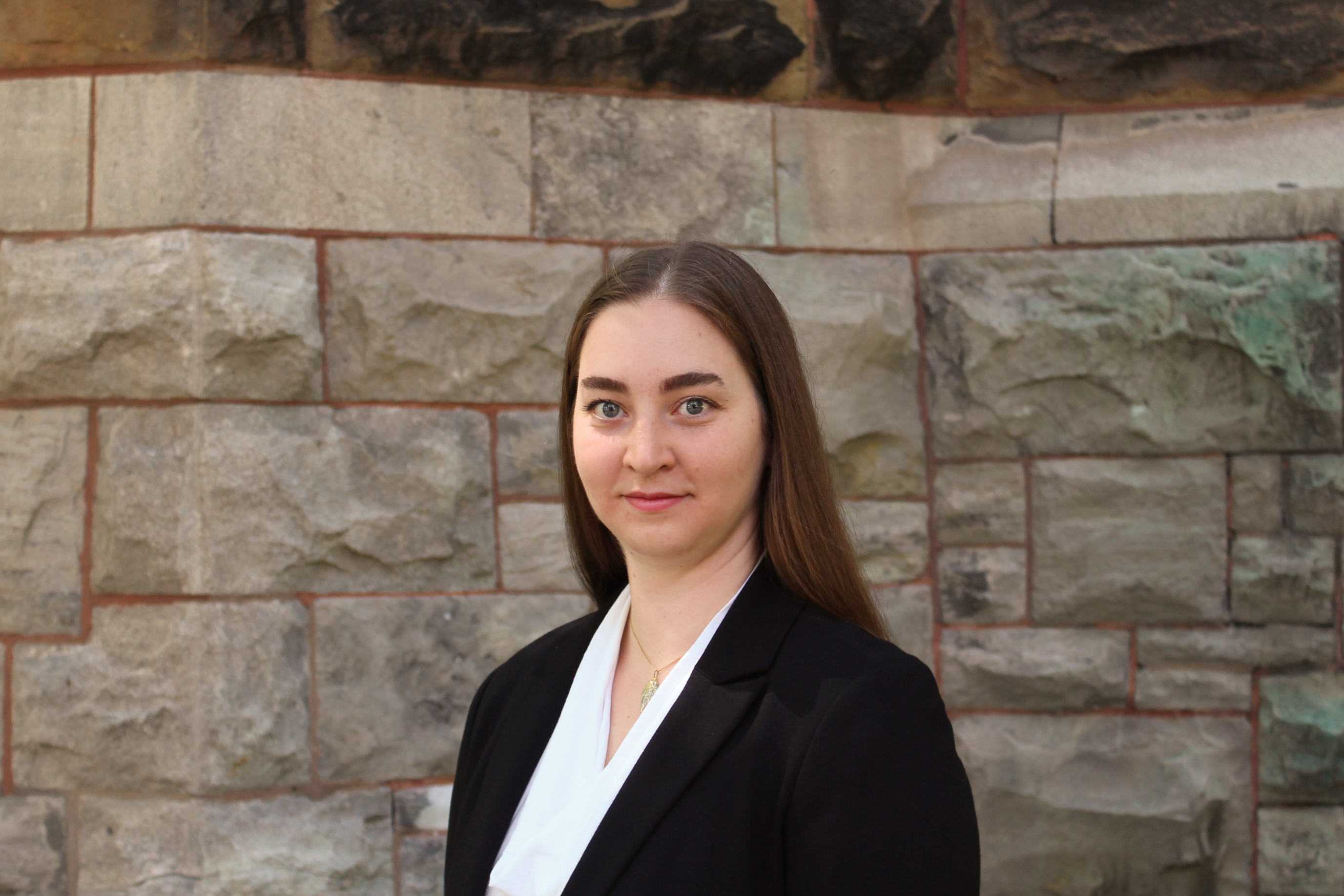
1. How does bilingualism influence your approach and understanding of the law and its issues ?
Early in my law school career, I came to understand that the Quebec and Canada we know today are built upon a multilingual foundation (which sees itself officially as bilingual). To properly understand Quebecois and Canadian law, one must at a minimum know that this bilingual foundation exists; better yet it should be understood. To understand it, simply speaking English and French without an accent is not sufficient. Bilingualism is more than the ability to speak two languages perfectly; it demands a detailed comprehension of the diverse anglophone and francophone cultures across Canada. When I find a legal scenario that does not make sense in a unitary system, my first reflex is to see if the affair is explained if I see it by the light of the other language, or in another legal system (with its associated history and culture).With this bilingual way of thinking and acting, my understanding of legal systems – how and why they work – is thoroughly enriched.
2. What in your past experiences or achievements marked your choice to pursue a career in law ?
I remember well a debate I had in high school; it clearly made me realize that our words, and the arguments we make, have the power to influence others. Since that time, I considered pursuing the study of law, so that I could better understand this power and properly handle it. Also, written words – including doctrine – sometimes have a greater impact than simple spoken words, because writing lasts for centuries. With my research at the Crépeau Centre, I personally see the effects of dialogues that were begun centuries ago, and I am witness to the effects that can be produced with small changes in wording. I am lucky to have the opportunity to work on projects that consider the impact that words within legal doctrine have on people.
3. How would you describe the Centre Crépeau community ?
I am excited to be able to work with a team as charming as the Crépeau Centre community! Everyone works hard, but with a gentleness that puts newcomers quickly at their ease. I am surrounded by people who are, like me, detail-oriented, so no question I ask is too small or insignificant. The community builds itself, quietly growing while we work together in character-infused rooms, or while we eat together outside. Each one helps the other, and everyone freely shares their knowledge. We tend to keep our books close, but one cannot expect anything else from those who are the guardians of a law dictionary and doctrine.
Nicholas Duguay
1. Is there a jurist that inspires you, and why ?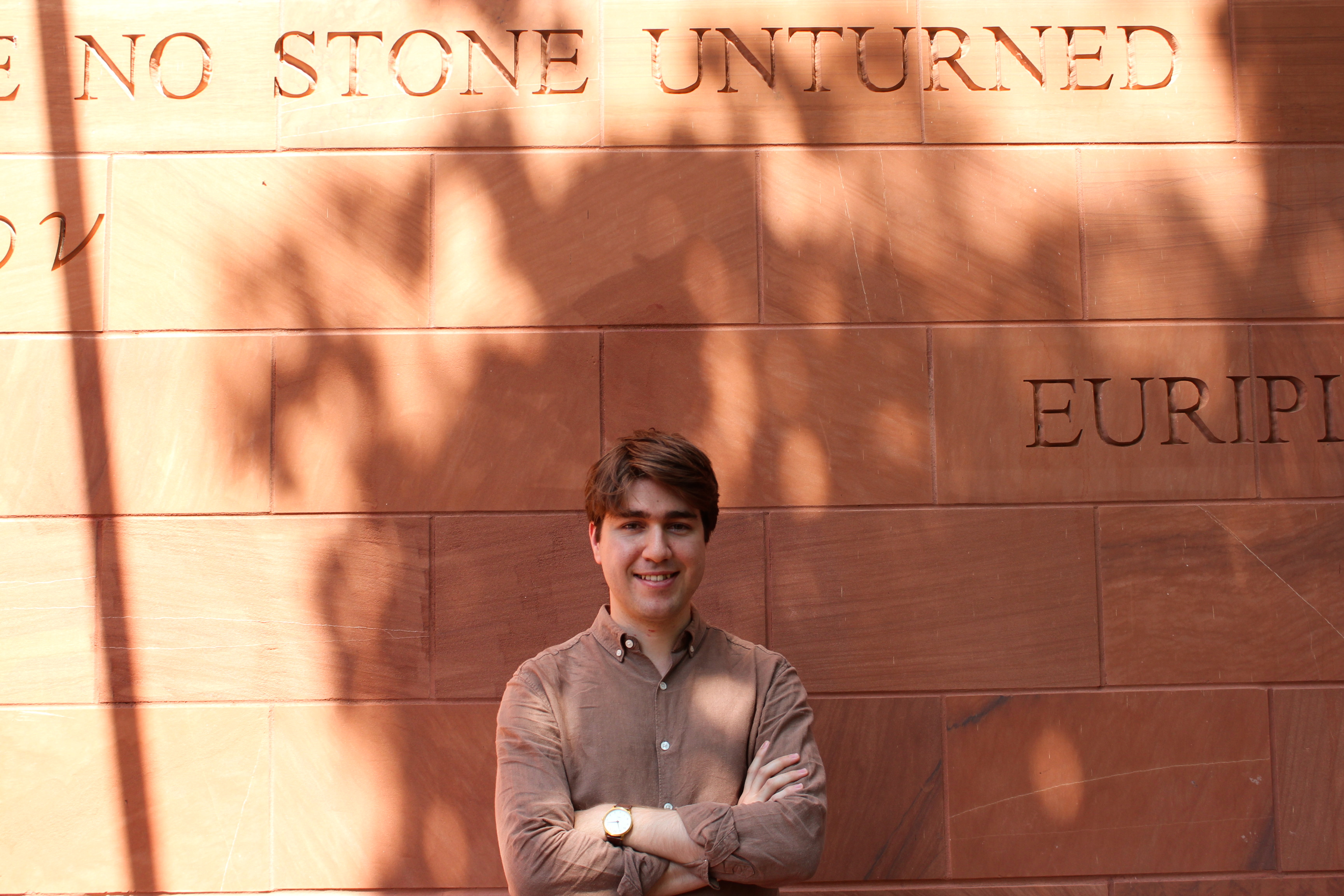
I’m inspired by the life and work of F.R. Scott. A renowned poet and jurist, F.R. Scott was a major contributor to the protection of civil liberties in both Quebec and Canada. While primarily known as a constitutionalist, F.R. Scott also had great admiration for the private law of Quebec, claiming that its regime of extracontractual liability “underpins the basic human rights. His insights on the interconnectedness of public and private law—and, more generally, on the rootedness of law in language—are always in the back of my mind.
2. How does bilingualism influence your approach and understanding of the law and its issues ?
On a practical level, bilingualism is integral to the study of law in Quebec because it allows for the complete exploration of doctrinal and jurisprudential sources. On a more conceptual level, thinking bilingually about law has made me reflect on the indeterminacy of legal concepts. The more I notice that the English and French versions of a legal concept fail to correspond, the more I suspect that the legal term itself fails to correspond with its intended object.
3. What prompted you to become a researcher at the Centre Crépeau ?
I applied as a research assistant at the Crépeau Centre to immerse myself in the epistemology and culture of the civil law. I was, moreover, intrigued by the role of lexicography in the production of legal knowledge. As a writer of poems and a lover of language, the meticulous exercise of defining legal terms appealed to me.
Charles Lefrançois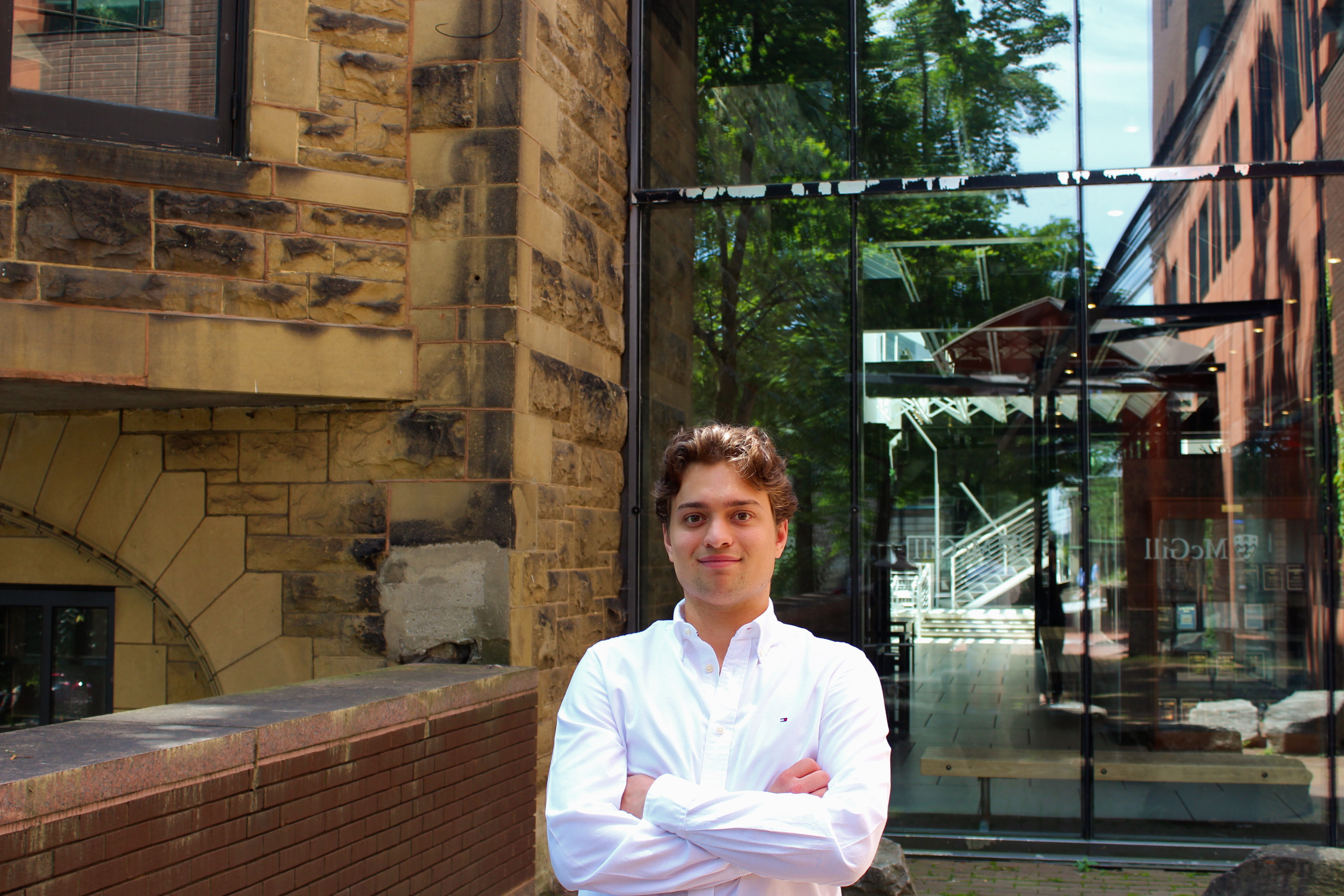
1. What prompted you to become a researcher at the Centre Crépeau ?
When I heard about the Centre Crépeau, I was immediately interested in the work it offered to students. Taking part in the legal dictionary project as a researcher is a great learning opportunity. Working at the Centre not only teaches us about the different sources of Quebec civil law and how to navigate them, but also—since our research leads us to the essence of legal terms—helps us understand how the law articulates itself.
2. How does bilingualism influence your approach and understanding of the law and its issues ?
Bilingualism is a remarkable tool in our study of law. When approaching a question or subject of Quebec law, being able to consult an equivalent source in the other language, such as the English version of an article of a codal provision, is a considerable asset. This bilingual approach allows us to discover nuances or details that are only apparent when the two similar, but never identical, versions are superimposed. The use of two languages to tackle a single legal subject thus enriches the possibilities of understanding. Indeed, one cannot claim to understand Quebec law in its entirety without navigating it in both French and English.
3. What in your past experiences or achievements marked your choice to pursue a career in law ?
My previous studies in history led me to study law. In studying history, I quickly realised that, rather than being a mere subject of study, it is often used as a tool in the construction of a society's values and customs. The law, which at first sight appears objective and detached, in fact reflects the same dynamics. By studying the law, we also observe the values that a society seeks to promote within itself.
Thomas Lessard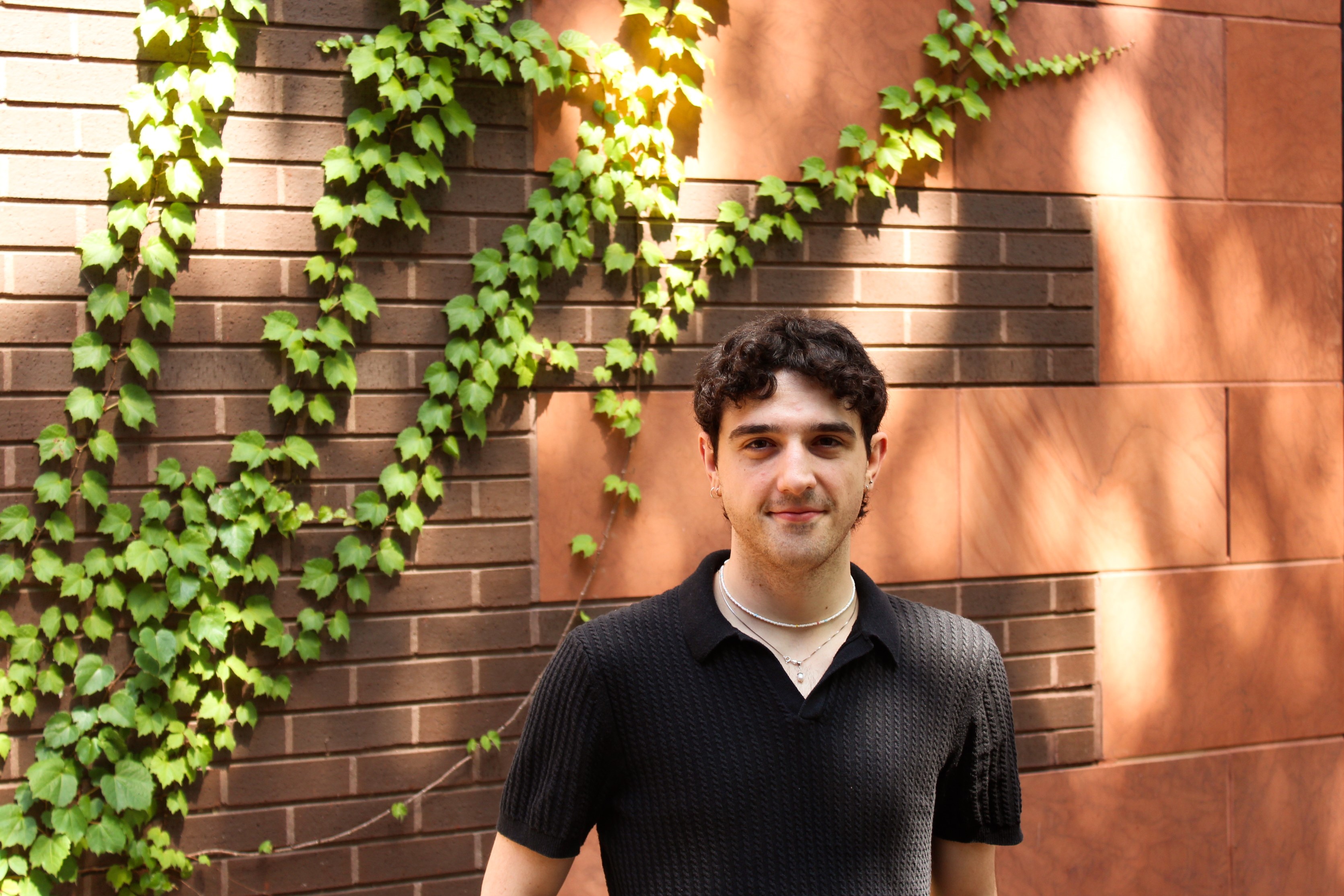
1. What prompted you to become a researcher at the Centre Crépeau ?
In my first year of law school, I had the opportunity to participate in multiple workshops and seminars, explore numerous doctrinal texts and legal articles, and engage in a variety of discussions with professionals from different fields. Every time I found myself interested in a particular assignment or project, the Centre was always involved in one way or another. I recall reading family law texts by Professor Christine Morin and attending a presentation by Professor Michaël Lessard, noticing that all these jurists who intrigued me were either directly or indirectly connected to the Centre's activities. Consequently, I too wanted to get involved in this "epicentre" of private and comparative law research.
2. How does bilingualism influence your approach and understanding of the law and its issues ?
"To imagine a language means to imagine a form of life," said Wittgenstein. Some see bilingualism as a simple tool for translation. However, a word represents much more than its letters and pronunciation, which is why words evolve and definitions change. Between French and English, we realize the influence that human "creations," like forms of law or types of languages, have on their own "creators." It is through this lens that law and its issues must be considered—not as a simple tool of justice, but as one of those living machines, whose parts have been assembled through trial and error. Certainly, some of these parts are rusted or broken, but we will continue to change and improve them, for—like our language—this machine needs us as much as we need it.
3. What are the qualities or shortcomings of a good legal researcher ?
In my view, the foremost quality of a good legal researcher is an awareness of their interests. Identifying what sparks our curiosity and drives us to delve deeper transforms a simple research topic into a personal quest for knowledge. Whether through the perspective from which one addresses a legal issue or through the choice of approach, a good legal researcher will find a way to become passionate. This not only makes the process more personal and enriching but also results in a final product of superior quality. However, this attribute can become a drawback when the interest invested in a task causes us to lose track of time and overlook the typically demanding schedule of legal research.
Charlotte Ruffo
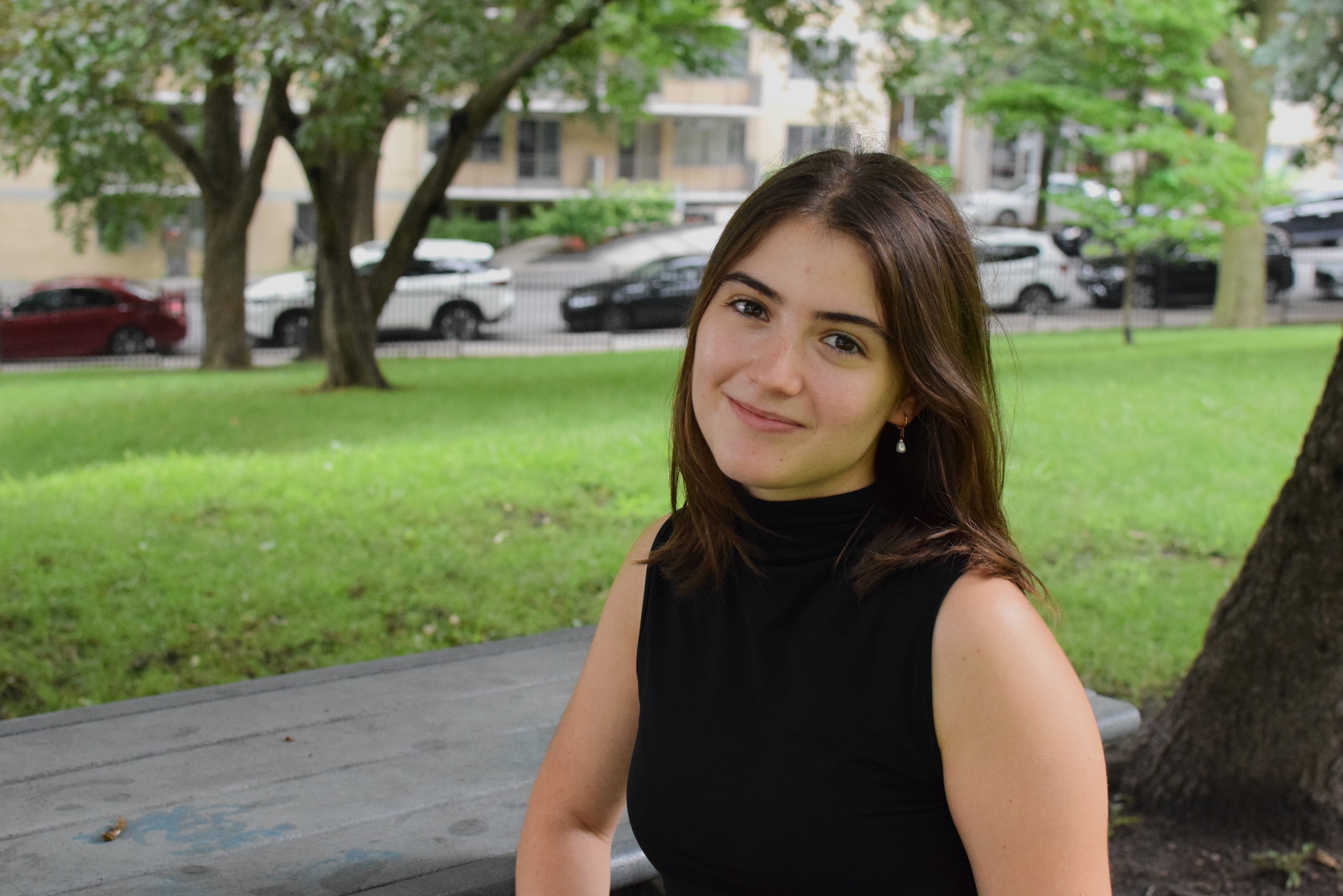 1. What prompted you to become a researcher at the Centre Crépeau ?
1. What prompted you to become a researcher at the Centre Crépeau ?
When you study law, you learn a new language. As I've always loved words, writing and reading, I must admit that this year, more than ever, I've discovered their power. I wanted to work at the Centre because I think that the work being done here is essential. Legal dictionaries are invaluable tools that enable a dialogue between French and English within the same legal tradition. I believe that this project contributes to dismantling certain barriers that language creates for law students, jurists and citizens.
2. How does bilingualism influence your approach and understanding of the law and its issues ?
The issues of translation and linguistics touch me deeply as a Francophone who doesn't want to witness French disappear from the McGill community, and who certainly does not want to see English-speaking colleagues hindered in their study of Quebec civil law due to a lack of sources in English. In this sense, bilingualism is a real advantage in my eyes. It is very rewarding to work in a team made up of people whose mother tongue is either French or English. The Centre's researchers are always helping each other out, which I think encourages wonderful exchanges! I learn tremendously from my colleagues.
Hiba Saji Eddine
1. In your opinion, what is the quintessence of Quebec private law ?
I believe that the quintessence of Quebec private law lies in its peculiar interaction with bilingualism, as well as its exchanges with the French civil law and English common law traditions. Quebec private law is shaped by the linguistic cohabitation of English and French, which profoundly influences its content and form. I believe that this interaction between languages and legal sources contributes to the maturity and autonomy of Quebec private law, clearly distinguishing it from its historical influences while affirming its own identity.
2. What are the qualities or shortcomings of a good legal researcher ?
A good legal researcher has the curiosity of a cat (and hopefully more than nine lives), the precision of a Swiss watch, and the creativity of an artist trying to draw a straight line. Their flaw ? That same curiosity can get the best of them—they can get so engrossed in a footnote that they forget about the main text. But, hey, that’s where the real gems are hidden !
3. What is the strength of law ? Its weakness ?
For me, the law’s strength lies in its ability to promote social justice. However, its weakness is its tendency to stick to tradition. This paradox is what I find fascinating to study. At the Crépeau Centre, there is a real effort to integrate changes into a discipline that is often perceived as rigid, in hopes of fairly reflecting contemporary legal and societal issues.
Fatoumata Tounkara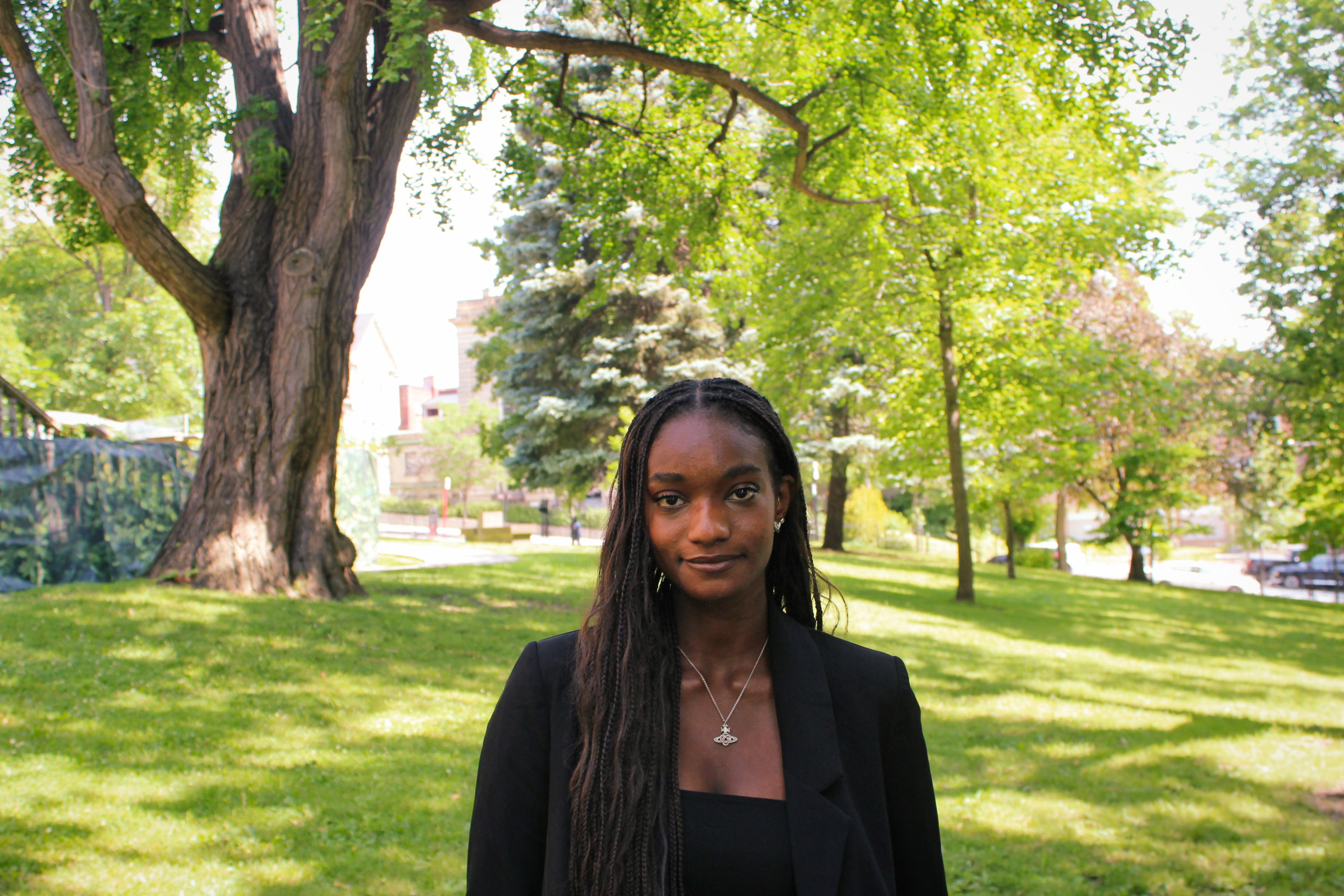
1. What prompted you to become a researcher at the Centre Crépeau ?
I was fascinated by the Dictionary project and saw it as an opportunity to broaden my knowledge on private law and improve my legal research methods. I was enthusiastic about working with experts dedicated to promoting a deeper understanding of Quebec law. Furthermore, I saw this project as an important opportunity to influence the legal field, fostering greater accessibility for a diverse range of persons / more people.
2. How does bilingualism influence your approach and understanding of the law and its issues ?
Bilingualism enables me to grasp the legal subtleties and nuances specific to each language, which directly influences my interpretation of legal texts and concepts. It gives me a multicultural perspective that feeds my curiosity and facilitates my understanding of the interactions between different legal systems, while helping me to better understand global issues. In short, bilingualism enables me to approach the law with a more open and inclusive vision.
3. How would you describe the Centre Crépeau community ?
I find the community at the Crépeau Center particularly supportive. Each member demonstrates attentive listening and naturally inspires others to strive for excellence in their legal research. Despite the individual nature of our research projects, I never feel isolated; I am consistently aware of how my work aligns with that of my colleagues and trust in their willingness to help deepen my understanding of the subject matter.
